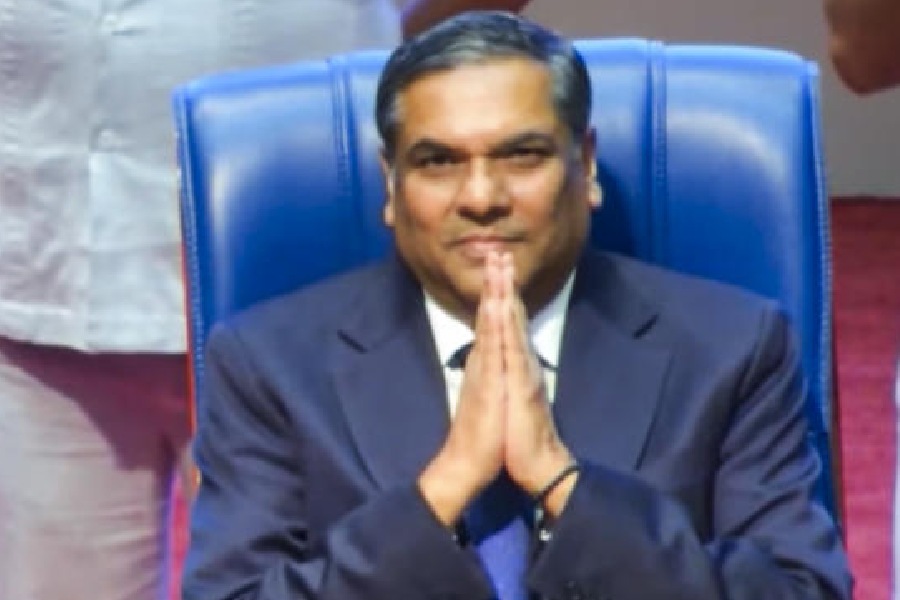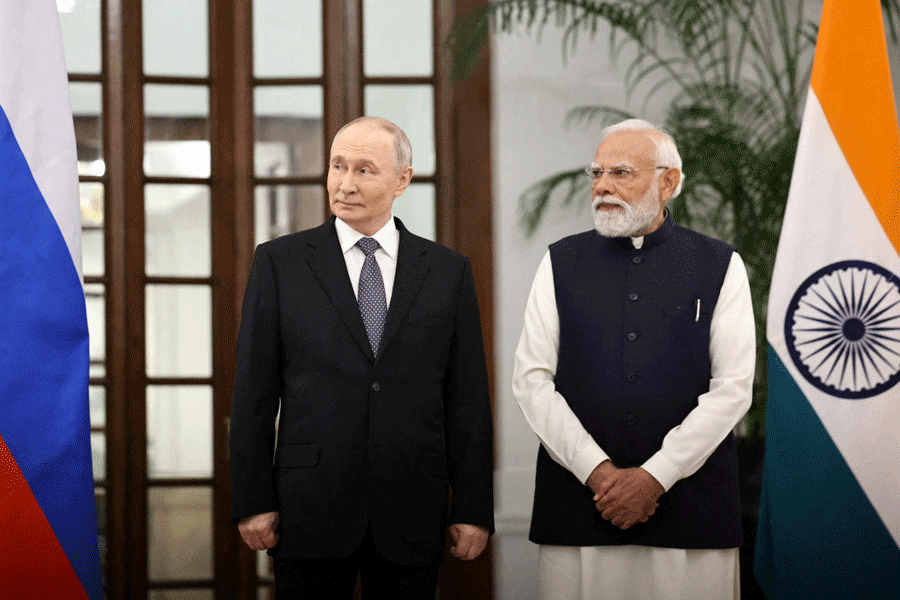Outgoing Chief Justice of India Sanjiv Khanna on Tuesday announced that he would not be accepting any post-retirement job, a marked shift from some of his predecessors who had taken up the role of governor or Rajya Sabha member after superannuation.
“I will not accept any post-retirement posts, but perhaps in my third innings I will do something related to law,” Justice Khanna told reporters in an informal chat at the Supreme Court press lounge, where he was invited by journalists.
While former CJI P. Sathasivam was made the Kerala governor, former CJI Ranjan Gogoi became a Rajya Sabha member after retirement.
Justice Khanna’s decision is significant as judges can become vulnerable to influence and pressures from the executive or the party in power if they accept post-retirement assignments, legal experts said.
The CJI-designate, Justice B.R. Gavai, had also told The Telegraph that he would not accept any post-retirement position. Former CJI R.M. Lodha, too, had said that judges should not accept post-retirement jobs and must have at least a two-year cooling period before accepting a fresh assignment.
In 2012, during a legal conference, BJP leader Arun Jaitley had said: “We are the only country in the world where judges appoint judges... pre-retirement judgments are influenced by post-retirement jobs.”
Justice Khanna demitted office on Tuesday. He became CJI on November 11, 2024, and is the nephew of H.R. Khanna, who was denied the Chief Justice’s post in 1977 after he gave a dissenting judgment in the 1976 ADM Jabalpur vs Shivkant Shukla case wherein he had ruled that fundamental rights cannot be curtailed even during the Emergency though the majority had at that time ruled that the right can be curbed.
Justice H.R. Khanna had resigned from the Supreme Court after the then Indira Gandhi government elevated Justice H.M. Beg, who was relatively junior to him, as the CJI in 1977.
Justice Gavai, who will be sworn in as the next CJI on Wednesday, said: “To walk in the shadow of such a man (Justice H.R. Khanna) is by no means a small task but Justice Sanjiv Khanna did more than just uphold that legacy. As a judge, Justice Sanjiv Khanna’s decisions reflected clarity of thought which was legally reasoned and sensitive to human rights. In both judicial pronouncements and administrative decisions, he has left a legacy of his own.”










